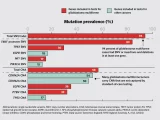
New Machine Learning Approach Enhances Predictions of CRISPR Technologies Efficacy
April 18, 2024Researchers from the Würzburg Helmholtz Institute for RNA-based Infection Research and the Helmholtz AI Cooperative have developed a machine learning approach that improves the prediction of the efficacy of CRISPR technologies. This new approach, based on data integration and artificial intelligence, outperforms previous methods and provides more reliable predictions of CRISPR interference (CRISPRi) performance when targeting specific genes.
Key Points:
- CRISPRi for Gene Regulation: CRISPRi is a molecular biological tool used to block genes and gene expression without modifying the DNA sequence, offering a precise way to alter or silence genes.
- Challenges in Prediction: Until now, predicting the performance of CRISPRi for a specific gene has been challenging, as it requires understanding the efficacy of the guide RNA and the impact of the silenced gene.
- New Machine Learning Approach: The researchers used data from multiple genome-wide CRISPRi screens to train a machine learning model. This model disentangles the efficacy of the guide RNA from the impact of the silenced gene, improving predictions of CRISPRi performance.
- Validation and Results: The team validated their approach by conducting an independent screen targeting essential bacterial genes, demonstrating that their predictions were more accurate than previous methods.
- Implications: The new approach provides a blueprint for developing more precise tools to manipulate bacterial gene expression, benefiting both biotechnology and basic research.
Conclusion: The new machine learning approach developed by the researchers enhances the prediction of CRISPRi efficacy, offering a more reliable method for planning and conducting CRISPRi experiments in the future. This advancement has the potential to improve our understanding of gene regulation and combat pathogens more effectively.
More information: Yanying Yu et al, Improved prediction of bacterial CRISPRi guide efficiency from depletion screens through mixed-effect machine learning and data integration, Genome Biology (2024). DOI: 10.1186/s13059-023-03153-y


